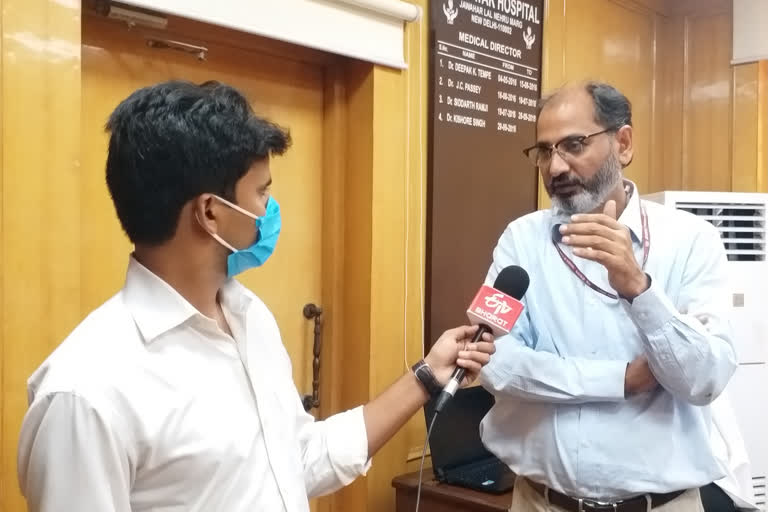New Delhi: The national capital, which recently got the country's first 'plasma bank' will soon have another such bank, with the LNJP hospital too installing its own plasmapheresis machine.
Speaking to ETV Bharat, LNJP Medical Director Dr Suresh Kumar said that the 'plasma bank' at the hospital would be inaugurated on July 13.
"We have installed the plasmapheresis machine. In a couple of days we will start operations. Recovered COVID-19 patients can come and donate their plasma. We hope that our blood bank plays an important role," he said.
Pertinently, it was at the LNJP hospital where plasma therapy first began in the national capital. Dr Kumar said that till date, 60 patients have successfully recovered through plasma therapy at the hospital.
"In the first phase 20 patients and recovered, and in the second phase, 40 patients have recovered till now," he said.
Earlier on July 2, the Delhi government had opened the country's first 'plasma bank' at the state-run Institute of Liver and Biliary Science (ILBS). Hospitals used to be dependent upon ILBS for plasma.
Read: Arvind Kejriwal lauds plasma donors, says proud of Delhiites
Now, the LNJP hopes to be self-sufficient in this regard with its own bank. "We have three counsellors, who have the records of the patients that have recovered. We will try and urge them to donate their plasma 2-3 weeks after their recovery," Kumar said.
However, Kumar said that the plasma therapy has been found to be successful only for moderate patients, as serious patients with multiple organ failures have not found success with the therapy. "Plasma therapy works well only if it is administered in time. It only works in the case of moderate patients," Kumar said.
It is pertinent to note, that there has been a dis-balance in the demand and supply of plasma in the national capital. While on an average 10-12 recovered patients have been donating plasma everyday at the ILBS, around 20 requests are being made daily.
Read: Delhi gets world's largest COVID Care Centre with 10,000 beds
In view of the above, the Delhi government has ordered the Delhi Plasma Bank at ILBS to collect replacement convalescent plasma against the plasma issued to patients suffering from COVID-19.
However, the city might soon get its third plasma bank, as a plasmapheresis machine has also been installed at the government-run GTB Hospital, which is awaiting approval from the drug controller authorities.



